Interview: Director John Farmanesh-Bocca On His Vision For PICNIC By William Inge
Presented at the Odyssey Theatre Ensemble, March 24 – May 26.
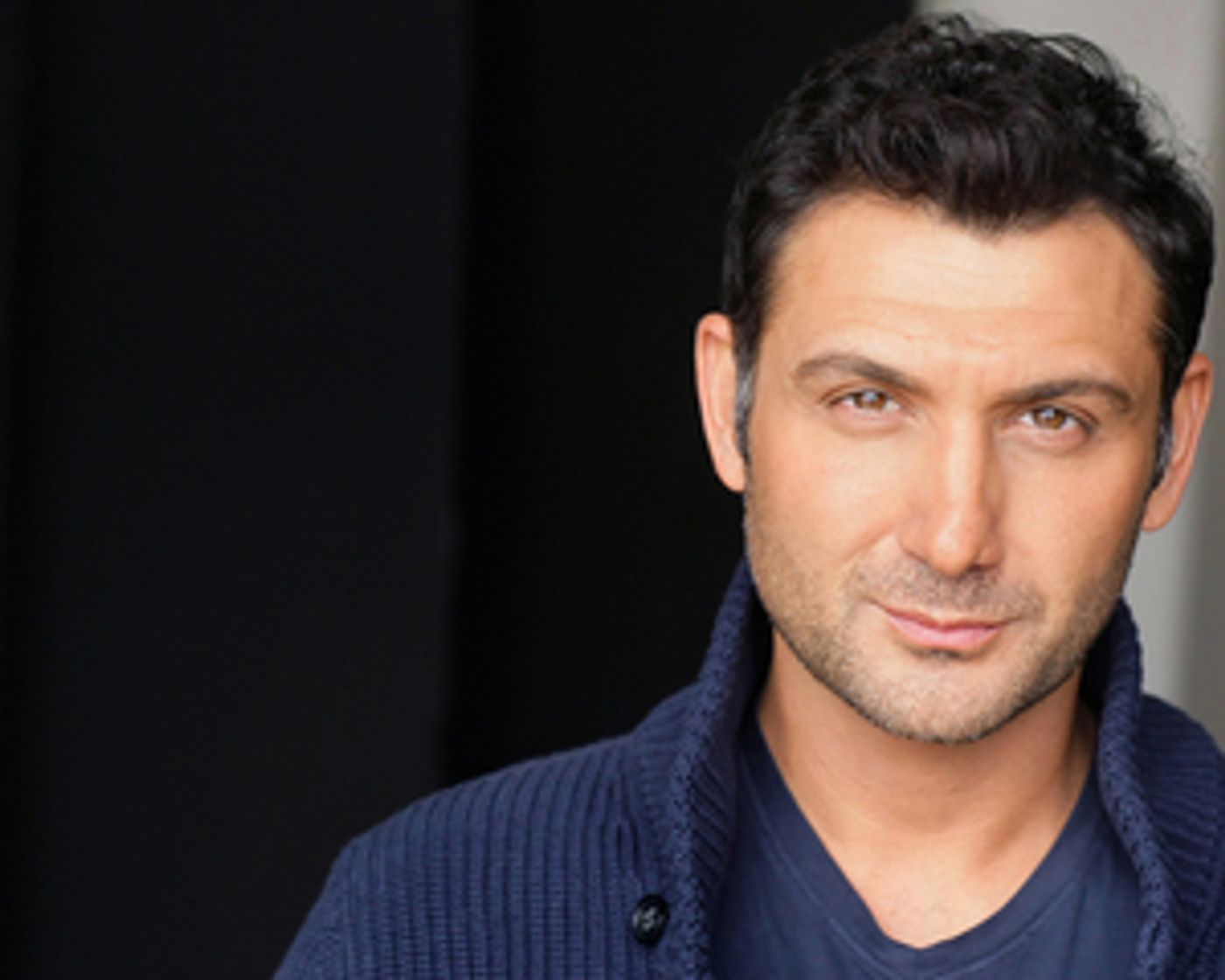
John Farmanesh-Bocca (pictured) is a multi-award-winning physical theatre director, the Founding Artistic Director of both Not Man Apart - Physical Theatre Ensemble (2005-2015) and Shakespeare Santa Monica (2003-2014). Now he has shifted gears to go on a search for America by directing the sensual, passionate, and delightfully funny Pulitzer Prize winning play Picnic by William Inge, with his version featuring an entirely Black American cast. I decided to speak with him about his vision for presenting the quintessentially American play and the unique challenges faced while shifting gears from physical movement to character development.
Hello John. First of all, I have seen many of your past staged productions which centered on mythological characters utilizing physical movement to assist in telling the story. So I am really curious about what made you decide to direct a classic 1950s play about an All-American family this time?
I do believe I am on a quest to explore a different kind of mythology as I am both a product and a tourist to the American experience. Growing up as a Middle Eastern kid, the son of an exiled Iranian General, in an odd and magical country where I felt like I was always on the other side of the glass looking in, I felt equally as turned on and left out, fascinated and frightened by everything I saw growing up here. But survival makes a person quickly go along to get along. Don't let my perfect standard American English television accent fool you. I do not feel of this place.
I guess I never reconciled for myself what this country was to me. I'm still trying to find out what it is. My father was brave enough to leave home, go against his cultural norms and bring us to this country, and he died the same night Donald Trump was elected. That moment just filled me with questions that had laid dormant in me all my life. Here I was loving a country that never felt like it loved me very much.
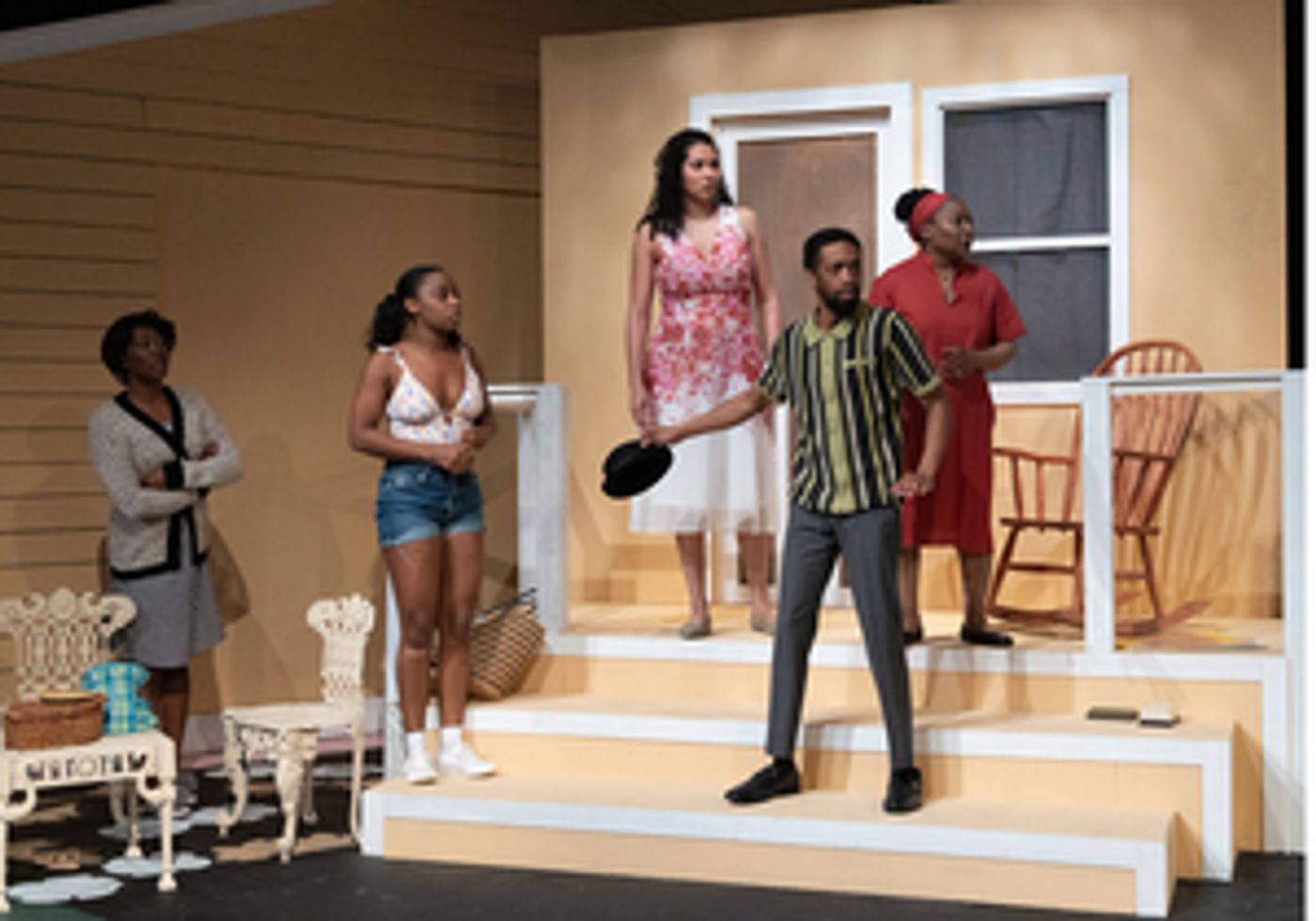
Sydney A. Mason, Symphony Canady, Caitlin O'Grady, Ahkei Togun, Yolanda Snowball
Photo by Jenny Graham
When I want to learn something, I do a play about it. It's the most intimate and exciting way I know how to explore a topic, culture, idea or feeling that I have. And although I grew up here, I realized I'm not sure I ever took the time to explore the soul of the country I've called home. I spent a decade doing war plays with my company Not Man Apart - Physical Theatre Ensemble. I was called to it. War from every point of view, the soldiers, the politicians, the mothers, the children, the oppressed, the conquerors. We did the work of ancient Romans to modern-day playwrights. My next decade of work in the theatre beckoned me to explore the mythology of America in all its facets. Although not at all in the vein of my other highly physical adaptations, it seemed to me that William Inge's Picnic was the perfect starting point from which to explore America.
Will you be utilizing your unique brand of artistic movement during the production to forward the story or share more about the characters, perhaps the searching for their souls you are talking about?
Although I am not going to be utilizing my signature physical/muscular staging in this piece, many other notable elements of my theatre work will be employed including an end-to-end soundtrack, whimsical elements and stagecraft. I promise you, that even without the main physical element I am known for, it will be unlike any of the other productions of Picnic you have ever seen.
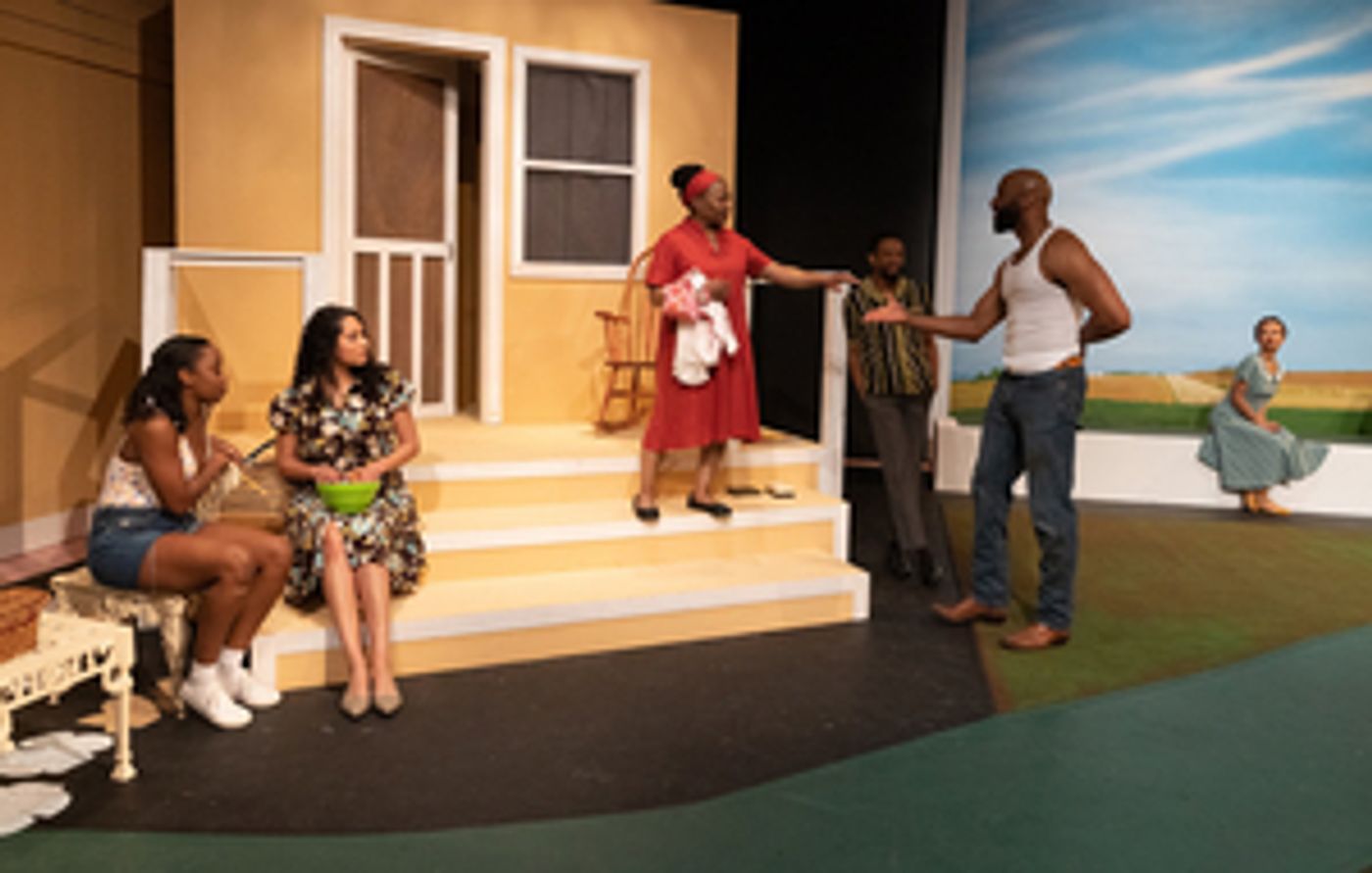
Symphony Canady, Caitlin O'Grady, Yolanda Snowball, Ahkei Togun, Monti Washington, and Mattie Harris Lowe
Photo by Jenny Graham
Of that, I have no doubt! What factors went into casting Picnic with an all-Black cast?
I was eager to explore a story about America-an idea still struggling to live up to its promise, searching for its soul. To me, it seemed that the American story was deeply embedded in the Black American experience; a country built largely on the skills and forced labor of black American citizens. Generationally speaking black families, whether by choice or not, were here at the founding of the country, fought for independence from England, and their contributions quickly established this country as an economic superpower.
The many ways America distinguishes itself from the rest of the world musically and culturally, from Jazz to Rock and Roll and Soul Music, are from the Black Americans perspective and contributions. Therefore in the hands of a black cast, rather than narrowing the scope, it only expanded the scope of the story of America by inviting us to celebrate how unique and similar our human experiences are.
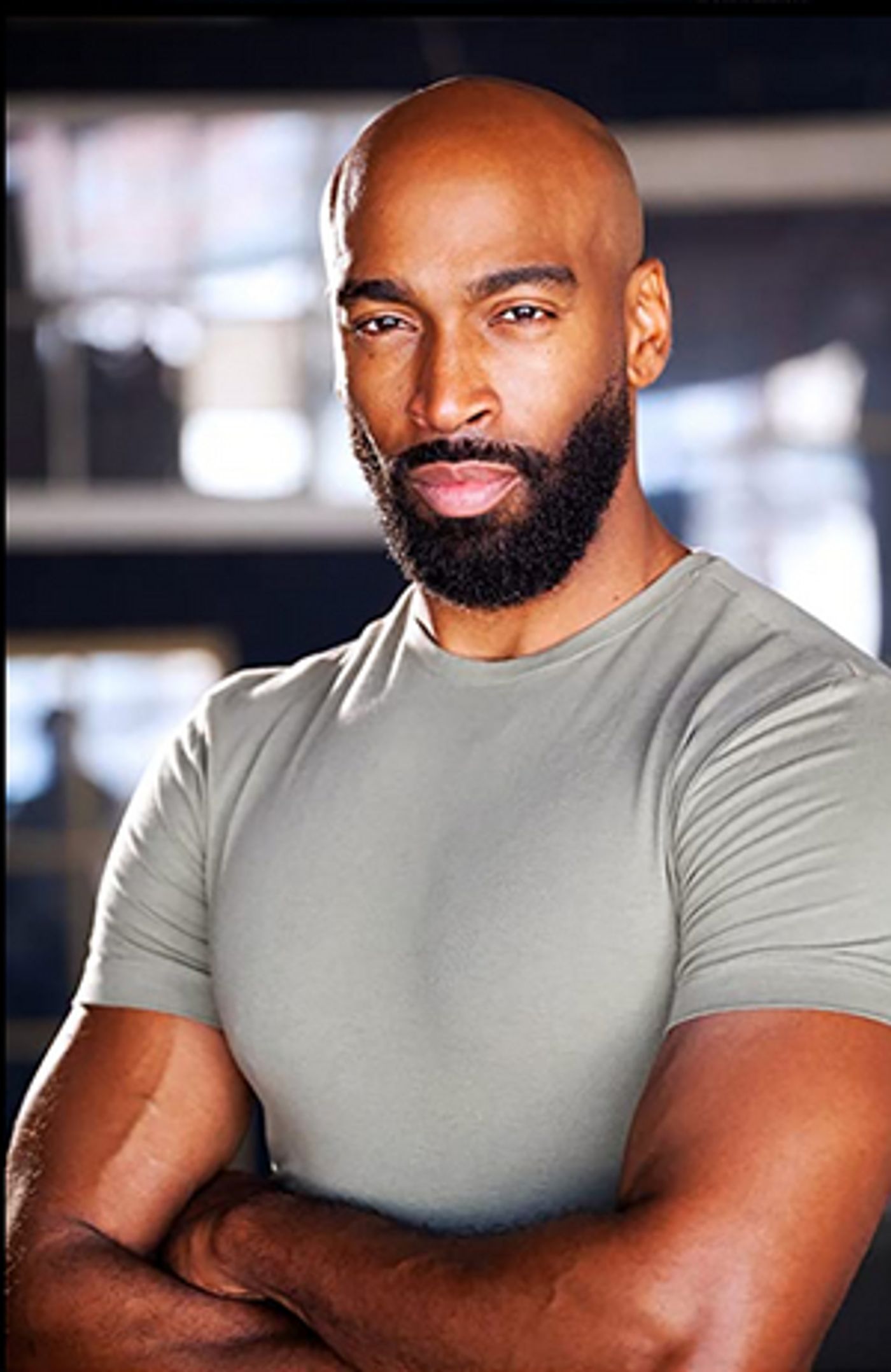
Monti Washington portrays Hal Carter.
Are you adapting the script or keeping it as it was written, set in a Kansas town in the early 1950s with charming drifter Hal Carter deciding to visit an old college friend, Alan Seymour, and then falling for Alan's girlfriend, Madge Owens, until her sister Millie's jealousy threatens it all?
I was loath to change a word of Inge's text, it just wouldn't have been the same if I felt I had to muscle the language to make it fit a concept. I'm here to learn about America, not try to tell it what it is. And although I have never been shy to rework or adapt ancient texts and plays, I still approach any piece I work on with great reverence. However, as it turned out, not a single word needed to be adjusted. Honestly, I wasn't sure if it would work at first, so we did a few test readings with actors before I pitched the idea. And the play rang like a bell.
The only license being taken overall is that I'm setting the play up a decade, setting it in the 60s instead of the middle/late 50s. The story still dances on the cusp of an imminent sweeping change, the nation's supposed loss of innocence when the avalanche of societal reckonings began with the Civil Rights movement, the sexual revolution, women's liberation, the war in Vietnam, the Manson family murders, riots in Detroit, the massacre at Kent State, an endless string of assassinations and mistrust of government. Cyclically countries come to the edge of change or destruction - around the world we are floating through one of those periods this decade.
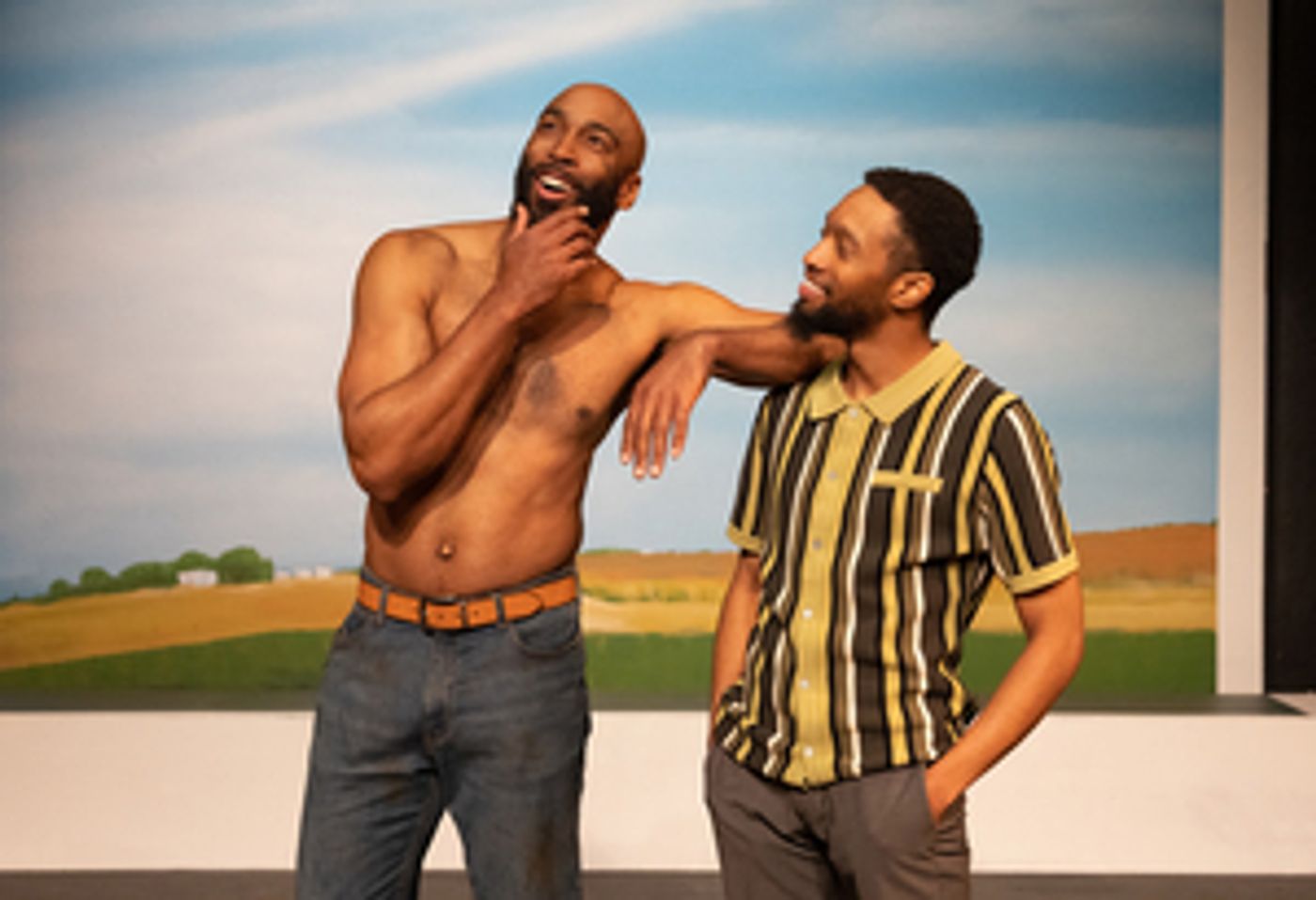
Monti Washington and Ahkei Togun
Photo by Jenny Graham
Ultimately, I'm hoping the new point of view I am bringing ends up accentuating and elaborating what the play is and its themes, not what it isn't. I always want folks to feel they know the play even better than they did before seeing our version.
Tell me a bit about the actors portraying these iconic characters and how you found them to cast in the play.
I wish there was space and time to tell you about each individual artist. A brief overview, they are perhaps the most eclectic cast I've worked with in recent years. They hail from all corners of the country - from the Pacific Northwest, to the deep south, to the east coast.
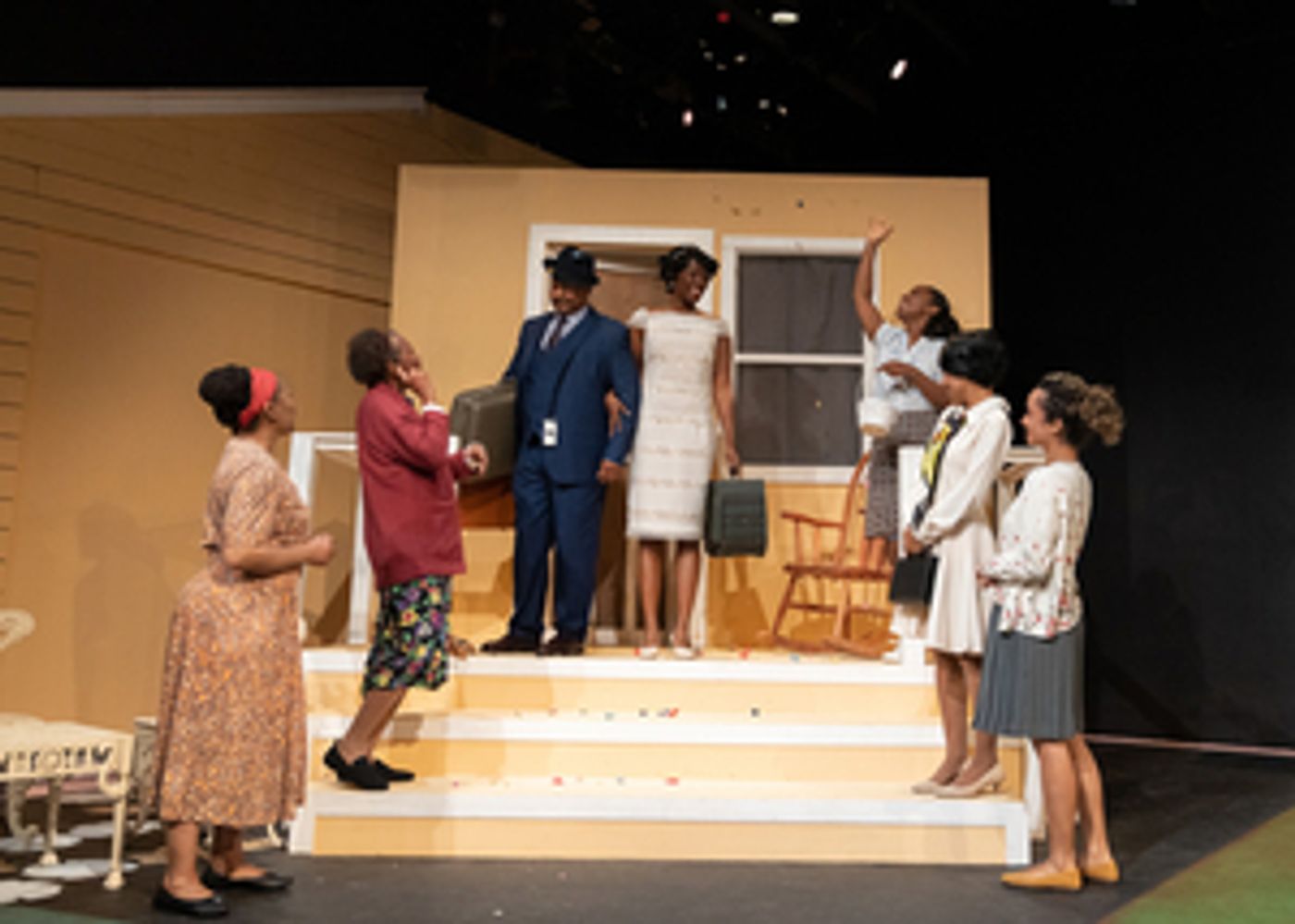
Yolanda Snowball, Rosemary Thomas, Derrick Parker, Sydney A. Mason, Symphony Canady, Erika L. Holmes, and Mattie Harris Lowe
Photo by Jenny Graham
Some of the actors I have worked with previously as company members of Not Man Apart, one a colleague I have shared the stage with, one is a former student of mine, one a former neighbor from across the street, one now a dear friend introduced to me by another dear friend, and a wonderful few I was simply lucky enough to have had audition. My actors are deeply talented, marvelous and delightful folks I have truly enjoyed spending time with and exploring the themes of this play.
My intention has always been to leave space for the actors to bring their culture to the stage. My directing is always searching for the most human moment I can elicit, but presenting culture is interesting. No particular group's culture is a monolith. It varies as wildly as the backgrounds of my wonderful cast. No matter my nationality or race, I don't believe it is my place, nor that of any director, to impose culture on their actors.
My beautiful and talented cast and I began working on this play 3 years ago, and just 3 weeks into rehearsals the pandemic hit. A lot has happened since we started our journey, but we are finally here, ready to play it for you.
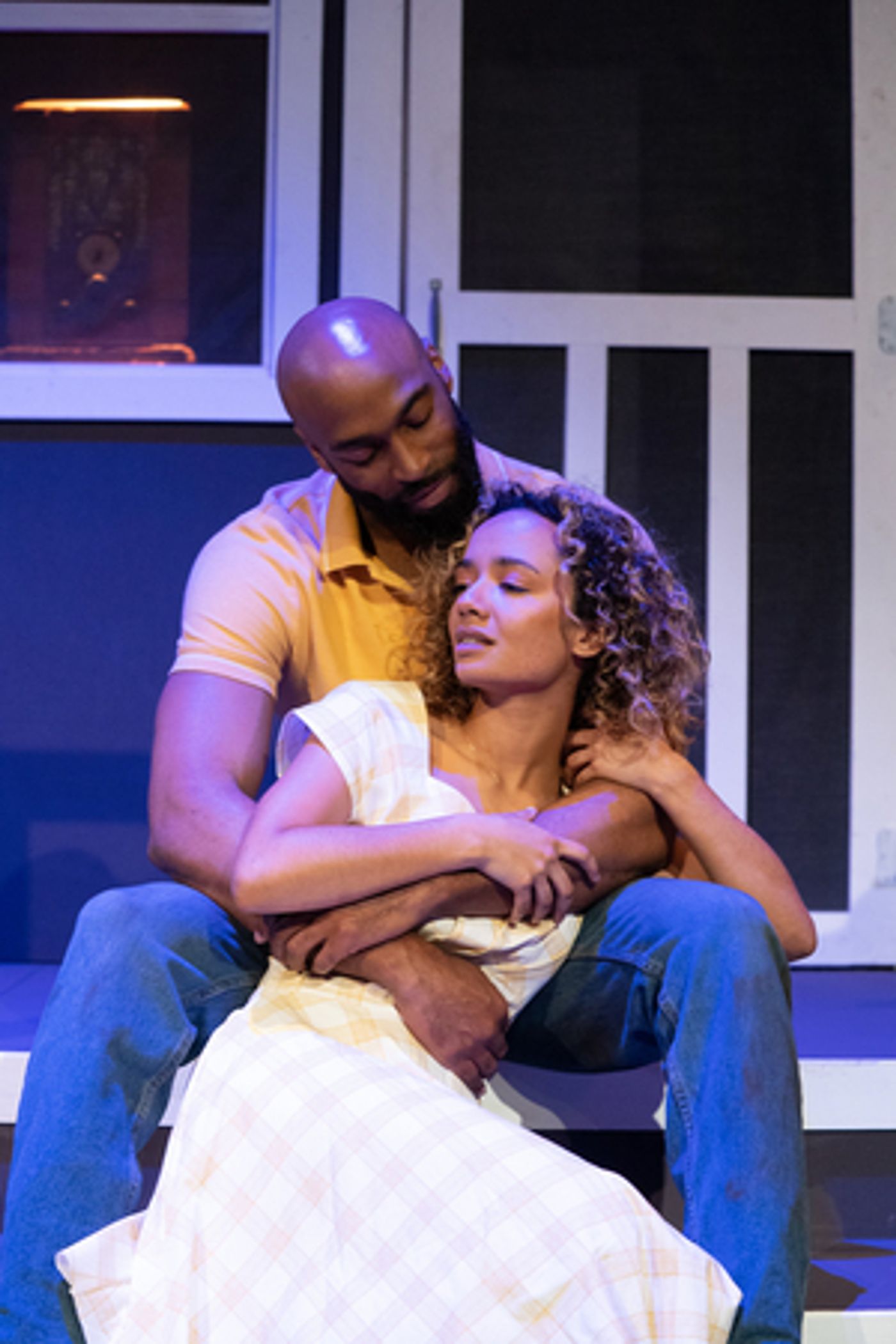
The two Madges - Mattie Harris Lowe (above) and Caitlin O'Grady, each with Monti Washington as Hal Carter. Photos by Jenny Graham
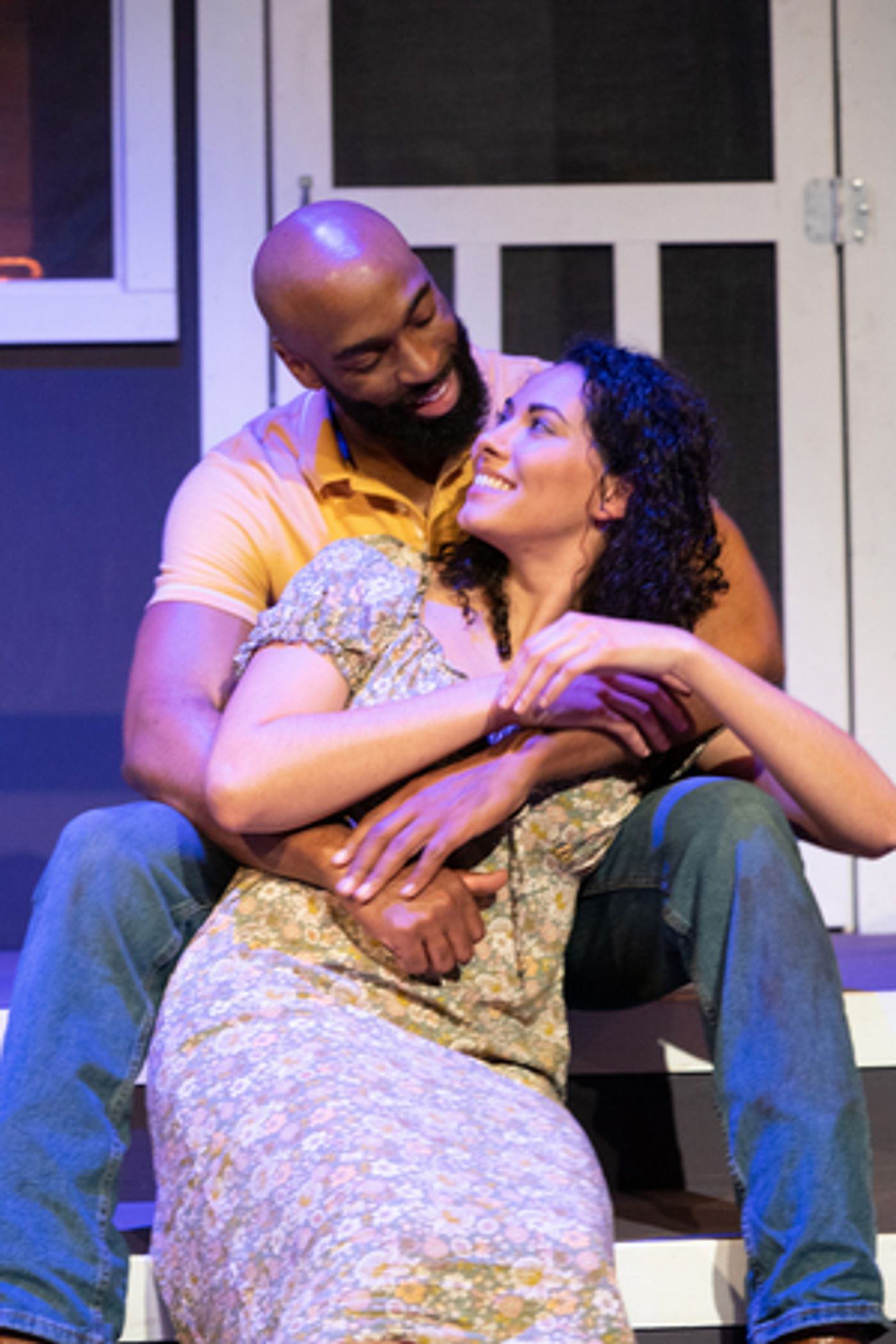
Why did you decide to double cast the role of Madge?
The off-night Madge plays Christine, so we have the same number of actors as we would otherwise. The main reason was a practical decision regarding scheduling and covering the main role, but it has actually ended up being a magical accident to have the variety of two Madges. The actresses have worked in tandem beautifully. They are so different from one another, but both wonderful. They keep the entire cast's "oar in the water," so to speak.
What have been some of the challenges about keeping the 1950s script seem not too out-of-date for today's audiences? Or is that part of the play's charm, centering it in a more innocent time?
Truly the only challenges have been staging a play where everyone seems to be passing through the stage nearly the entire play. Otherwise, the play is definitely of a time, but not at all out of date with what we are going through today. After all, it's a story about love and love will always be relevant and timely while asking the Big Simple questions of life:
Will we live our lives for others, or ourselves?
Do we exercise our freedom through duty or following our dreams?
And most importantly, where does LOVE fit into it all? Love of self, love of another, love of community.
With this whimsical, romantic and ever relevant play, we get to explore society's hard expectations and treatment of women, and also the assumptions and role play of its men. The burden and over-estimated importance placed on beauty is terribly relevant by the dramatic increase in suicide deaths of teen girls in the past decade due to the prescribed limits we place on ourselves and others. Picnic is framed by the beautiful contradiction of a heroic country that was built on cruelty, filled with the evergreen promise of prosperity and equality, forever just out of our reach.
Thank you for such thorough answers, John!
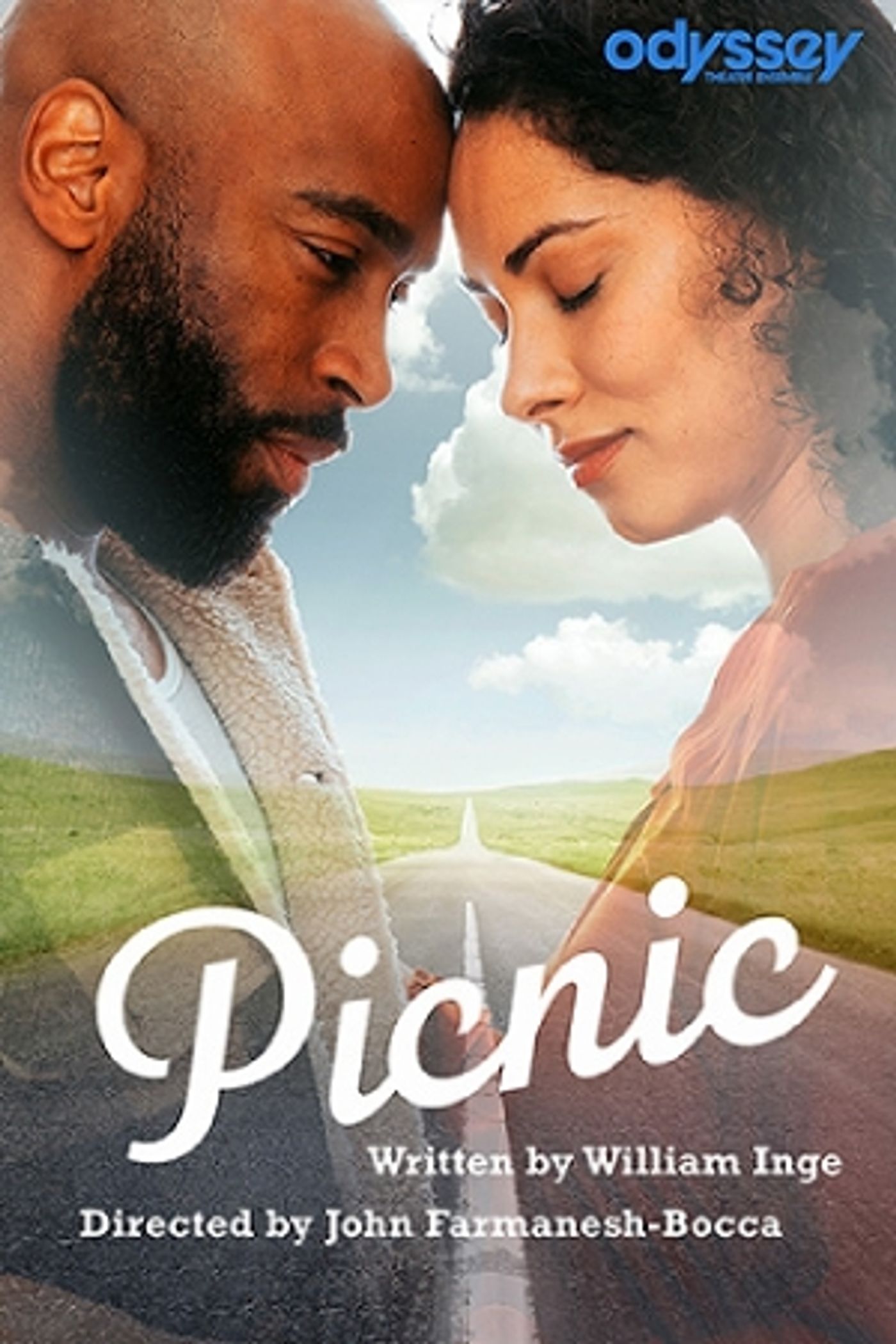
Picnic by William Inge, directed by John Farmanesh-Bocca, is produced by Beth Hogan for the Odyssey Theatre Ensemble in association with Isabel and Harvey Kibel. Featured in the cast are Monti Washington (Hal Carter), Mattie Harris Lowe (Madge Owens), Caitlin O'Grady (Madge Owens), Symphony Canady (Millie Owens), Yolanda Snowball (Flo Owens), Akhei Togun (Alan Seymour), Sydney A. Mason (Rosemary Sydney), Ronin Lee (Howard Bevens), Derrick Parker (Howard Bevens), Rosemary Thomas (Helen Potts), Erika L. Holmes (Irma Kronkite), and Rogelio Douglas III (Bomber).
Previews March 22 and March 23, Press Preview: March 24 (also open to the public). Performances run March 25 through May 28 on Fridays & Saturdays at 8pm, Sundays at 2pm, Mondays at 8pm April 17, April 24, May 8 only, Wednesdays at 8pm on May 10, May 17 only. Post-performance discussions on Monday, April 17 and Wednesday, May 10. Wine Nights on Friday, April 28 and Friday, May 19 with complimentary wine and snacks after the show. The Odyssey Theatre is located at 2055 S. Sepulveda Blvd., Los Angeles CA 90025.
Ticket prices: Previews: $20. Fridays, Saturdays, and Sundays: $25-$40. Mondays are Pay-What-You-Will (reservations open online and at the door starting at 5:30pm) Tickets and more information at www.OdysseyTheatre.com or via phone to (310) 477-2055 ext. 2.
Videos

